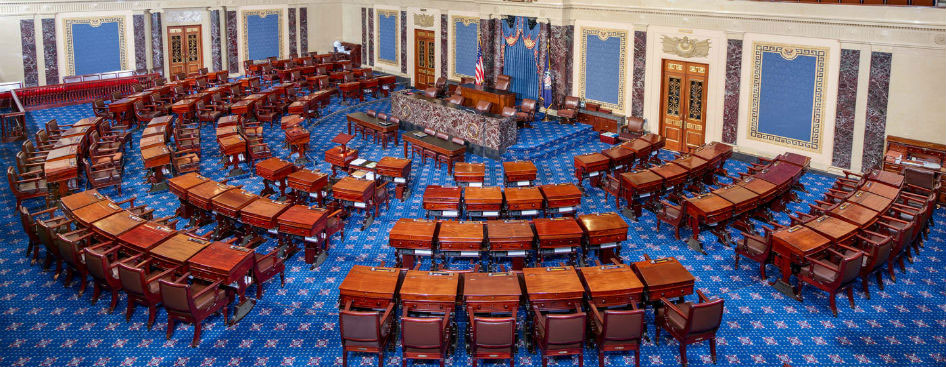
The U.S. Senate confirmed Daniel Bress to a seat on the U.S. Court of Appeals for the 9th Circuit on July 9, 2019. The Senate voted 53-45 along party lines to confirm Bress. Sens. Bernie Sanders (I-Vt.) and Kirsten Gillibrand (D-N.Y.) did not vote. President Donald Trump (R) nominated Bress on February 6, 2019, to succeed Judge Alex Kozinski.
The United States Court of Appeals for the 9th Circuit is one of 13 U.S. courts of appeal. They are the intermediate appellate courts of the United States federal court system. After Bress receives commission and takes his judicial oath, the 9th Circuit will have 16 judges appointed by Democrats, 12 judges appointed by Republicans, and one vacant seat.
Bress graduated with his A.B. in government from Harvard College in 2001. He obtained his J.D. from the University of Virginia School of Law in 2005. He worked as an associate and later partner for the law firm of Kirkland & Ellis LLP from 2008 to 2019. Bress was a law clerk to U.S. Supreme Court Justice Antonin Scalia from 2006 to 2007.
Bress was born in California and lived in Virginia at the time of his nomination. On March 7, 2019, Sen. Dianne Feinstein (D-Calif.) wrote in an op-ed that she was concerned about Bress' confirmation. She wrote: "[Bress] was born in California but practices law in Washington, D.C., and lives in Virginia. ... Given California’s demographics and the high quality of its educational institutions – and given California’s centrality to the Ninth Circuit – I don’t understand why the White House would choose someone with such a limited connection to the state."
The White House denied claims that Bress did not have ties to California. According to the Sacramento Bee, an anonymous administration official said Bress worked out of Kirkland & Ellis' San Francisco office and owned property and paid taxes in the state.
Neither Sen. Feinstein nor Sen. Kamala Harris (D) of California returned blue slips for Bress' nomination. A blue slip is a piece of paper a home-state senator returns to the chair of the Senate Judiciary Committee to show his or her approval of a federal judicial nominee. Traditionally, United States senators have the power to prevent a federal judicial nominee from receiving a hearing and subsequently being confirmed by withholding a blue slip. Sen. Lindsey Graham (R-S.C.), who chairs the Senate Judiciary Committee, applies a policy in which the lack of a blue slip does not prevent a judicial nominee from moving forward in the confirmation process.


